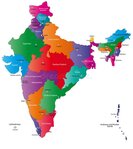


Indian Christians are on their knees, praying for a change in the nation’s political direction. Christianity is India’s second largest minority religion after Islam in this the world’s largest democracy. The ruling National Democratic Alliance, led by Prime Minister Narendra Modi and his Hindu nationalist Bharatiya Janata Party (BJP), has just secured its’ third five-year term.
The BJP in the past has not responded positively to the demands of the nation’s religious minorities for protection under the present constitution. There has been a rising tide of Hindu nationalism and emboldened attacks on religious minorities, including Christians. This is so even though Christians, form the major religious group in three states of India – Meghalaya, Mizoram and Nagaland. They also form significant religious communities in Manipur, Arunachal Pradesh, Kerala, Tamil Nadu, and Andhra Pradesh.
There are reports of increasing prayer movements carried out by Christians in the face of threats of constitutional reforms that would create anti-conversion laws and enshrine second-class citizenship to religious minorities. What is clear is the need for the 2.3 % of the Indian population that is Christians to mobilize on their knees and on their feet to advocate for a nation that respects the rights of all its citizens.
Christianity has a deep footprint in India, which started with the apostle Thomas in the 1st century of the early Church. It has contributed significantly to the social, economic, and political development of the sub-continent. Christian Indians have been active in politics, such as Sonia Gandhi and M.M. Thomas; in business, Gerson Da Cunha and Annamma Mathew; and as social reformers, Mother Theresa and Pandita Ramabai Sarasvati, to name just a few.
Indian Christians in this era will have to strengthen their collaborations with each other and with other ethnic minorities to call on the nation’s leadership for equality and equity. Their participation in the United Christian Forum for Human Rights, Evangelical Fellowship of India, and the National Council of Churches of India will become a critical tool for preserving the multi-religious identity of the country. They will be required to form alliances both within and outside the Republic of India, where an influential and powerful Indian diaspora exists.
India is an important member of the Commonwealth and is desirous of becoming a superpower on a global scale. If it is to gain and maintain these esteemed positions, its leadership will also have to abide by international laws and conventions concerning the rights of minority groups. The international Christian Church has its part to play in the defence of our praying brothers and sisters isolated in the tribal villages and rural communities through our local churches' generosity and national denominations’ support for the suffering church. Through ecclesiastical and diplomatic avenues, we must heed the cries of our fellow saints and raise up an international outcry for peace, truth, and justice.
As the Christian Church in India prays, may the apocryphal wisdom of the gospel of Thomas verse 5 be theirs, “Jesus says, “Come to know what is in front of you, and that which is hidden from you will become clear to you. For there is nothing hidden that will not become manifest.”
Comments
No comments on this item Please log in to comment by clicking here